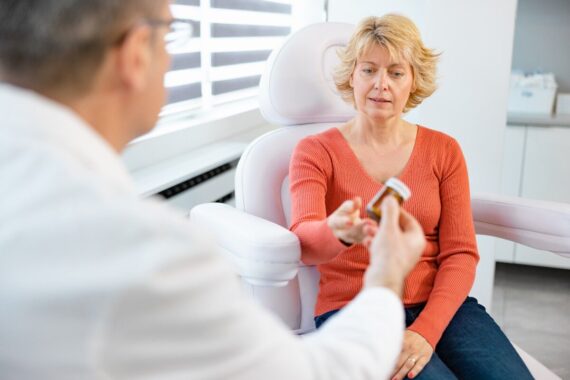The Government has said it will allocate £25 million over the next two years to speed up the development of women’s health hubs.
It will provide better access to care for menstrual problems, contraception, pelvic pain and menopause care and could also offer cervical screening, ministers said.
However, primary care experts warned that it was a further ‘fragmentation’ of services, rather than investing in core general practice.
The hubs, first announced as part of the Women’s Health Strategy for England could also reduce pressure on secondary care waiting lists, the Department of Health and Social Care said.
It is not yet clear how many hubs will be in place or how women will access them but it is understood they will be ‘tailored’ to meet local needs.
An interim report published in October by a team at Birmingham University who are evaluating the proposals found that currently women’s health needs are met by a variety of providers, venues and professionals but services are not often not well integrated and there are challenges in access.
They identified 14 women’s health hubs around the country but said that the situation was evolving and many were still in development.
Most commonly they had been set up as ‘one-stop shops’ to reduce secondary care use and cut the number of appointments needed for single issues and were run by GPs with a special interest in women’s health.
Only a small number were found to offer self-referral with most taking referrals from primary care.
Existing hubs such as those in Liverpool and Manchester had significantly increased appointments for long-acting reversible contraception, alongside other services such as menstrual health, menopause, and pelvic floor care, the Government said.
In City and Hackney, the women’s health hub was offering a digital model with virtual menopause engagement events and group consultations, with follow up in a physical location hub where needed.
Health and social care secretary Steve Barclay said: ‘New funding of £25 million for women’s health hubs – which provide tailored services for women including menopause care, menstrual health and contraception – mean more women can get the right support that works around their daily lives.’
Minister for women’s health Maria Caulfield added: ‘Better access to specialist services is key to tackling health inequalities – the £25 million funding will create new Women’s Health Hubs providing specialist care and advice to women across the country.’
Professor Azeem Majeed, professor of primary care and public health at Imperial College London, said he welcomed investment in health services for women.
‘We do need to improve care in areas such as menstrual problems, pelvic pain and the menopause.
‘However, once again, the Government is fragmenting the delivery of primary care. Rather than investing in core general practice services, they are investing in vertical health programmes.
‘These have been shown to be less cost-effective than investing in primary care in research from other countries.’
He added: ‘Investing in vertical programmes in this way also creates duplication of health services. My preference would have been to see these funds used to improve the delivery of healthcare for women in general practice.’
The Government’s 10-year Women’s Health Strategy was launched in August and set out how it would improve how the health system engages with and listens to women and girls.
Last month, the Government rejected a recommendation to introduce mandatory menopause training for GPs, saying ‘it is not necessary.’
That followed a recommendation from the House of Commons Women and Equalities Committee recommended that the menopause is be given ‘more priority’ in initial training for GPs and a ‘mandatory aspect’ of continuing GP professional development.


















Amazing we have such a minister or have a need for this but have they forgotten about 50% of the population? What about men?